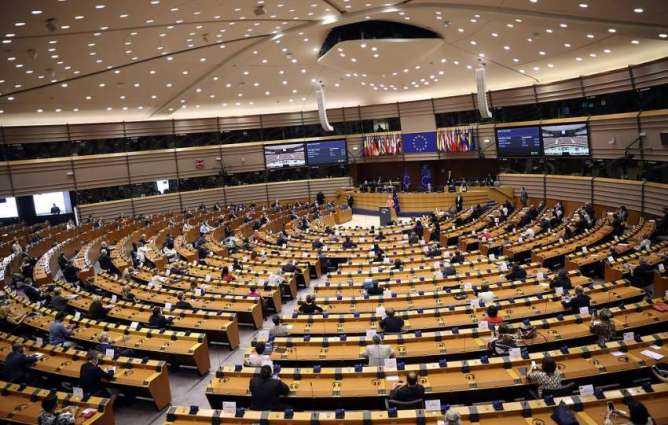Russia rejects the European Parliament's resolution on Russian opposition figure Alexey Navalny as an interference in its internal affairs and is ready for dialogue with Europe only on principles of mutual respect, the head of the Russian lower house's international affairs committee said in an address to EU lawmakers on Monday
MOSCOW (Pakistan Point News / Sputnik - 21st September, 2020) Russia rejects the European Parliament's resolution on Russian opposition figure Alexey Navalny as an interference in its internal affairs and is ready for dialogue with Europe only on principles of mutual respect, the head of the Russian lower house's international affairs committee said in an address to EU lawmakers on Monday.
On Thursday, the EU legislature passed a resolution, demanding that the bloc work out a list of "ambitious restrictive measures" against Russia over the alleged assassination attempt on Navalny and strengthen the existing sanctions. It also reiterated its call on the European Union to stop the Nord Stream 2 pipeline project.
According to Leonid Slutsky, the European Parliament used Navalny's alleged poisoning as a "pretext to unleash a large-scale campaign of pressure and interference in the internal affairs of the Russian state."
"Under the guise of unsubstantiated accusations of [Russia] allegedly poisoning and persecuting Navalny, the EU institutions are being offered to actually initiate the state reconstruction of our country by adopting a kind of 'strategy of democratization' of Russia and demanding that Moscow repeal amendments to the Constitution of the Russian Federation, which � approved by popular vote � are recognized as 'illegal,'" the address said.
The senior lawmaker went on to stress that the European Parliament has no business telling Russia how it should live, as it is up to Russian people to decide.
The official also rejected the legislature's conclusion that "the attempted assassination of Alexei Navalny was part of a systemic effort to silence him and other dissident voices, and to deter him and those voices from further exposing serious corruption in the regime and deter political opposition in the country in general, in particular with a view to influencing Russia's local and regional by-elections of September 11-13."
As for Europe's calls for an international investigation, Slutsky sees them as "unconvincing, at the very least, against the background of German authorities refusing to cooperate with the Russian side, ignoring Moscow's requests for data and covertly handing biomaterials to third countries to confirm the results that someone is interested in."
The committee chief appealed to the EU27 to stay away from "politicized" approaches, demonstrated by the European legislature.
"Russia is more interested than any other country in establishing the truth of what happened to Russian citizen Alexey Navalny. We are ready for full-scale cooperation at all levels, including the parliamentary one, based on the principles of openness, mutual respect and non-interference in the affairs of sovereign countries," Slutsky concluded.
Navalny fell ill during a domestic Russian flight on August 20. He was initially treated in the Siberian city of Omsk, where the plane had to urgently land. Two days later, once the doctors established he was fit for cross-border aerial transportation, the 44-year-old was flown to the Charite hospital in Berlin for further treatment.
Later, the German government said doctors had found evidence of a nerve agent from the Novichok. According to Berlin, these conclusions were confirmed by labs in France and Sweden. Tests in Russia did not show traces of poison in Navalny's system. Moscow demands that Germany provide evidence.
Navalny's condition has since improved. He is no longer on a ventilator and can get out of bed.




